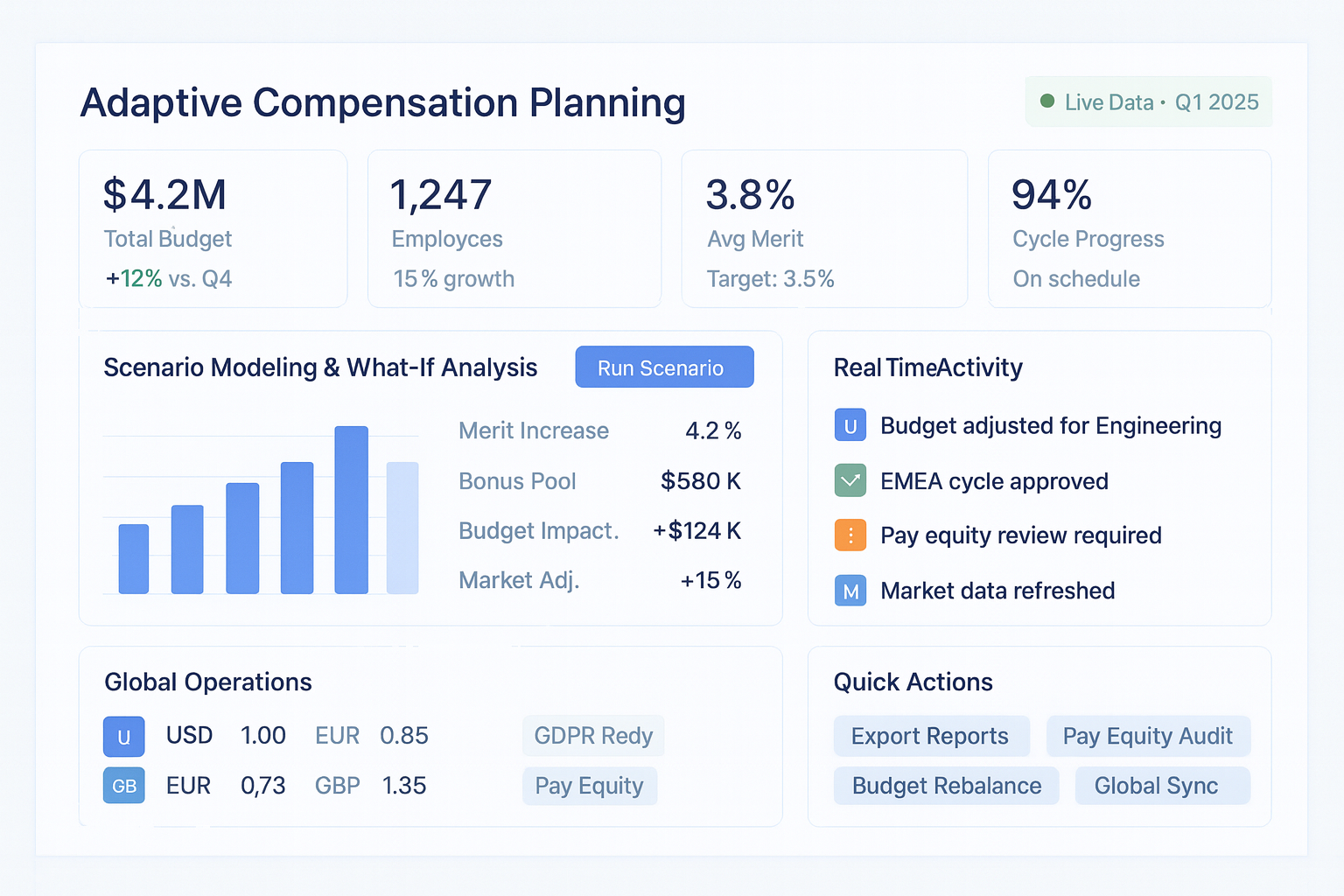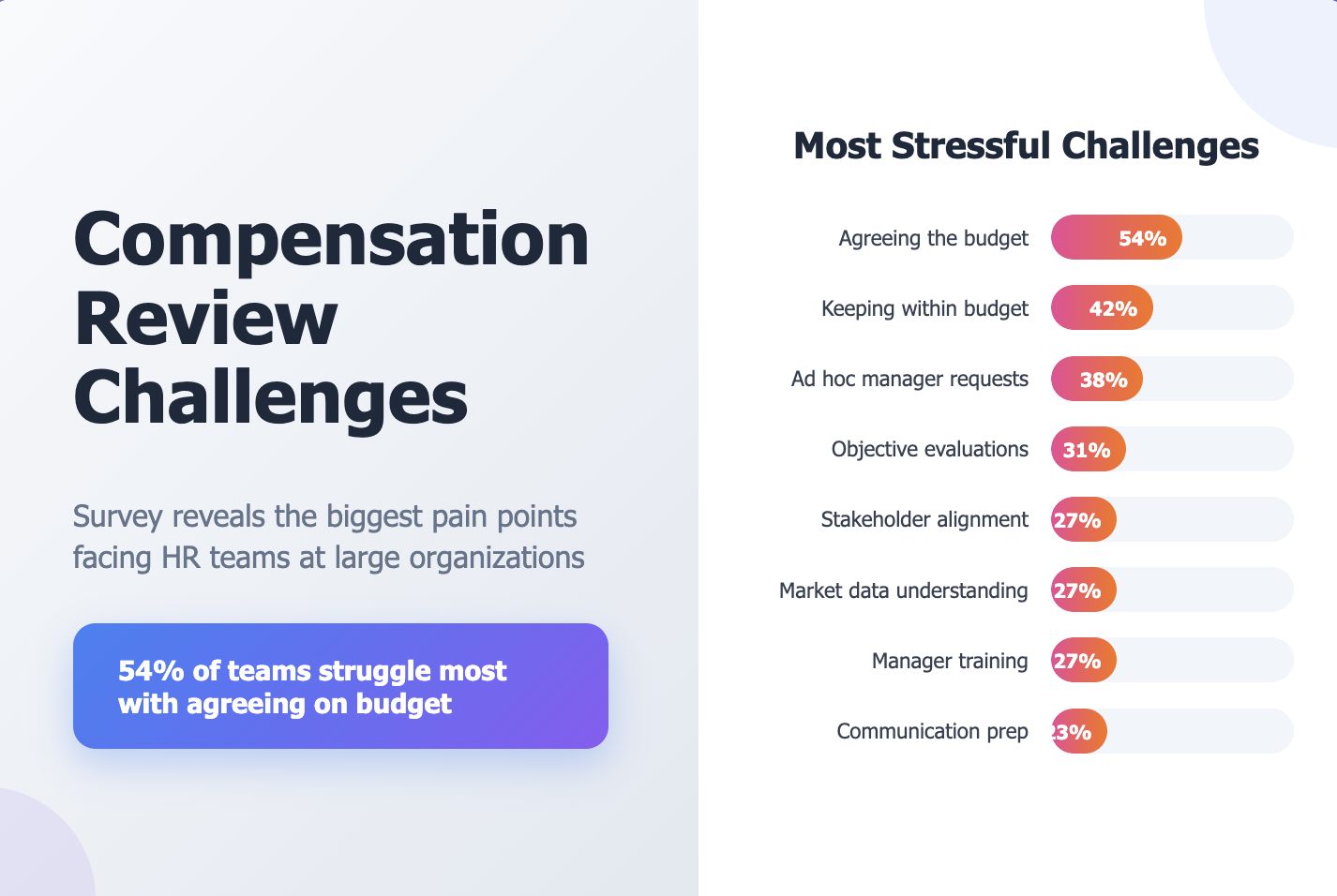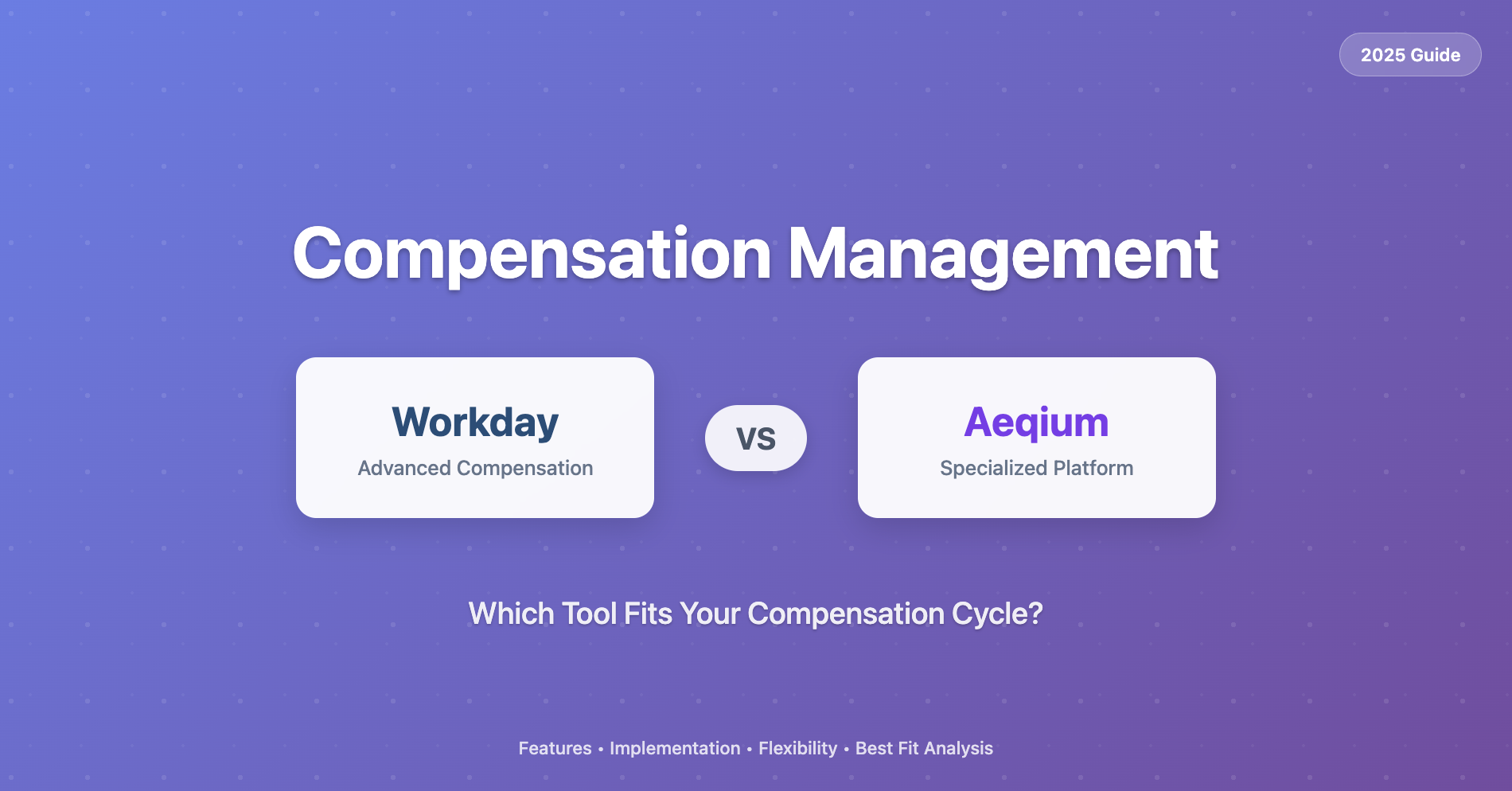How to Run Adaptive Compensation Planning

Adaptive compensation planning is the practice of managing pay programs in a way that can quickly adjust to changes in the business, workforce, or external environment. Unlike static processes that rely on rigid systems or spreadsheets, adaptive planning is dynamic, flexible, and built to evolve as conditions shift.
At its core, adaptive compensation planning ensures your pay strategy can:
- Adjust structures, bonuses, or equity plans as business needs change
- Support multiple models (base pay, bonuses, equity, long-term incentives)
- Scale with global workforces and compliance requirements
- Empower managers and leaders with real-time visibility
- Use AI and analytics to drive fairer, smarter decisions
Real-World Examples of Adaptive Planning in Action
Consider a tech company that needs to pivot compensation mid-cycle when a key competitor raises their salary bands by 15%. With adaptive planning, HR can instantly model the budget impact of matching those increases, adjust guidelines for specific roles, and communicate changes to managers within days rather than months.
Or take a growing company expanding into new markets. Adaptive planning allows them to layer in local compliance requirements, currency conversions, and regional pay practices without rebuilding their entire compensation framework.
The 8 Foundations of Adaptive Compensation Planning
To make adaptive planning work in practice, companies need:
- Clean, Centralized Data – A single source of truth that integrates HRIS, payroll, and performance data
- Flexible Configurability – The ability to adjust budgets, guidelines, and approval flows without IT or outside consultants
- Scenario Modeling – Tools for "what-if" analysis to quickly show the impact of different bonus models or forecasts
- Real-Time Visibility – Dashboards and audit trails to track progress, changes, and budget usage at every stage
- AI and Automation – Support for surfacing anomalies, recommending adjustments, and executing approved steps faster
- Global and Compliance-Ready Design – Features that support multiple currencies, localized rules, and pay transparency requirements
- Manager-Friendly Experience – Interfaces that make it simple for line managers to input recommendations while staying within guardrails
- Continuous Feedback Loops – Reporting and analytics to evaluate results and refine future compensation strategies
Best Adaptive Compensation Planning Software: Top Options
When evaluating platforms for adaptive compensation planning, several vendors stand out for different reasons:
Enterprise-Grade Platforms
Workday HCM offers comprehensive compensation management within their broader HRIS platform. Strengths include deep integration with other HR processes and strong reporting capabilities. However, configuration typically requires specialized expertise and changes can take weeks to implement.
SAP SuccessFactors provides robust global capabilities and handles complex organizational structures well. The platform excels at compliance and audit trails but can feel rigid when organizations need to make quick adjustments to compensation logic.
Aeqium is built specifically for adaptive compensation planning with enterprise-grade security and global capabilities. Strengths include no-code configurability, instant scenario modeling, and fast implementation. The platform gives HR teams direct control over complex compensation cycles without IT bottlenecks.
Specialized Compensation Platforms
Beqom focuses specifically on total rewards management with strong scenario modeling capabilities. They excel at complex incentive calculations but implementation can be lengthy and the interface may feel overwhelming for managers.
CaptivateIQ targets sales compensation specifically, with powerful commission modeling and real-time tracking. While excellent for sales teams, it's less suitable for broader compensation planning across all employee types.
Lattice combines performance management with compensation planning, offering good manager experience and clean interfaces. However, it may lack the depth needed for complex enterprise compensation scenarios.
Key Evaluation Questions to Ask Vendors
Before selecting a platform, press vendors on these critical areas:
- Speed of change: How quickly can we adjust mid-cycle without IT involvement?
- Implementation timeline: Weeks or quarters to go live?
- Manager adoption: What's the actual user experience for line managers?
- Integration depth: Real-time APIs or batch uploads?
- Global readiness: Multi-currency, local compliance, pay transparency?
- Scenario modeling: Can we test budget impacts instantly?
- Total cost: Platform fees, implementation, ongoing support?
Implementation Considerations
Timing: Most organizations should plan 6-12 weeks for implementation, depending on complexity and existing system integrations.
Change management: The biggest risk isn't technical—it's user adoption. Choose platforms that managers will actually want to use.
Data quality: Clean up HRIS data before implementation. Bad data will undermine even the best platform.
Support: Look for vendors with strong customer success teams, especially during your first few cycles.
Why We Built Aeqium for Adaptive Planning
We created Aeqium because we kept hearing the same frustrations from Total Rewards teams: powerful platforms that took months to configure, rigid systems that couldn't adapt to business changes, and managers who defaulted back to spreadsheets because the "official" tools were too complex.
Aeqium addresses the adaptive planning requirements differently:
No-code configurability means HR teams can adjust cycle logic, approval workflows, and budget allocations in real-time without waiting for IT or consultants.
Instant scenario modeling allows teams to test "what-if" scenarios for merit increases, bonus pools, or equity refreshers and see budget impact immediately.
Manager-first design provides clean interfaces where managers can see pay bands, market data, and performance context without feeling overwhelmed by enterprise complexity.
Enterprise integration supports real-time connections to HRIS, payroll, and equity systems while maintaining the flexibility to adapt quickly.
The platform was designed specifically for organizations that need enterprise-grade capabilities without enterprise-grade rigidity.
Making the Right Choice
Adaptive compensation planning demands flexibility, visibility, and intelligence. The right platform should empower HR and finance leaders to respond to change in real time while maintaining fairness and compliance.
Consider your organization's specific needs: Do you need deep HRIS integration or standalone flexibility? Complex global compliance or streamlined processes? Heavy customization or quick implementation?
The best adaptive compensation platform is the one that gives your team real control over your compensation strategy, whether that's Aeqium or another solution that fits your specific requirements and constraints.




